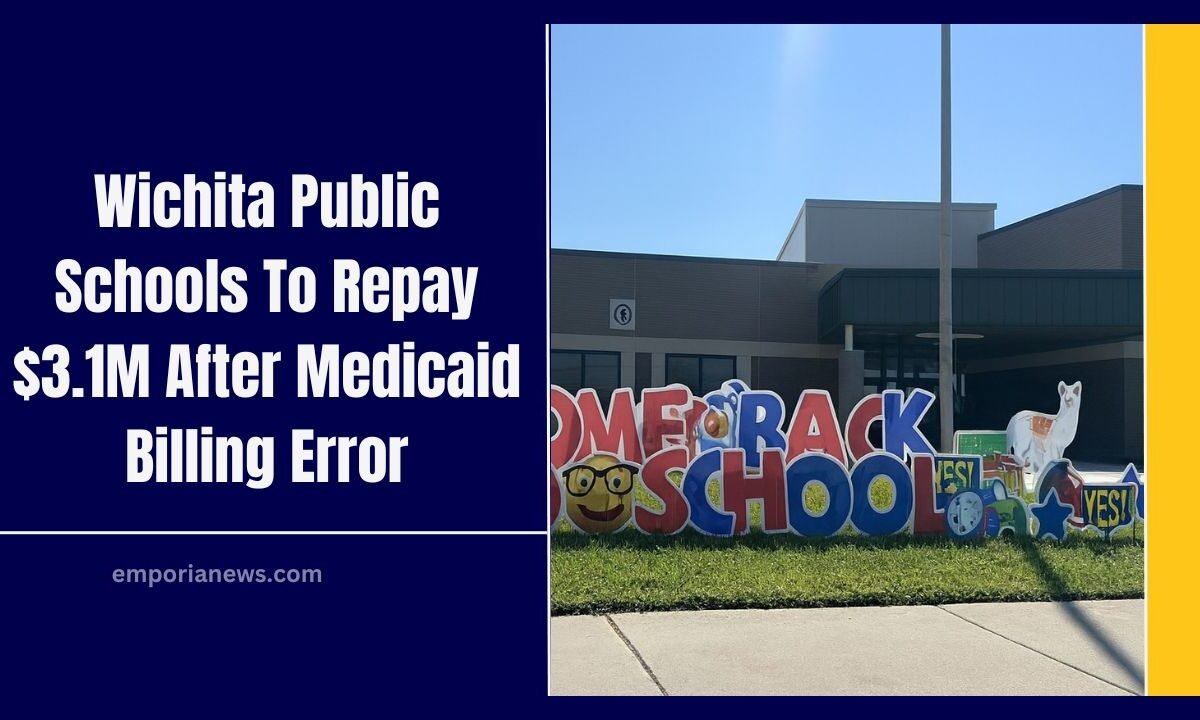A comprehensive audit revealed that the Kansas Department of Health and Environment (KDHE) made a data miscalculation that resulted in widespread Medicaid overpayments.
School districts across Kansas are now required to return more than $11 million in total. Wichita Public Schools (USD 259) faces the largest individual repayment amounting to $3.1 million—far exceeding the under-$25,000 debts of most other districts.
Repayment Plan Details
| Item | Details |
|---|---|
| Institution | Wichita Public Schools (USD 259) |
| Overpayment Amount | $3.1 million |
| Statewide Total Overpayment | Over $11 million |
| Repayment Strategy | Four quarterly installments using unrestricted reserve funds |
| Error Duration | Affecting Medicaid reimbursements across a seven-year period |
| Budget Impact | Shortfall will impact the 2025–26 fiscal year |
| KDHE Response | Implementing staff training, process reviews, and fall training sessions |
Financial Strain on Schools
USD 259 has committed to repay the $3.1 million in four installments, drawing from its unrestricted reserves to avoid compromising current operations.
This unplanned financial obligation poses a significant burden—straining budgets originally allocated to deliver Medicaid-eligible services to needy students.
The potential for disruptions in essential staffing or service delivery remains a critical concern moving into the 2025–26 school year.
Systemic Fixes from KDHE
In response to this error, KDHE has pledged to enact safeguards to prevent recurrence:
- Enhanced staff training programs
- Robust internal process audits
- Scheduled review sessions throughout the fall
These measures aim to safeguard Medicaid billing accuracy and maintain trust in public funding.
Why Reserves Were Needed
Wichita’s ability to draw from unrestricted reserves proved vital. The school district emphasized that these funds were the only viable fallback to manage an unexpected multi-year fiscal hit without immediate disruption to student services.
This situation underscores the importance of maintaining financial flexibility to navigate unforeseen disruptions.
Broader Implications for School Districts
Most Kansas school districts owe far less—less than $25,000 each—yet the financial pressure is collective. Reimbursement mandates threaten to:
- Reduce staffing in Medicaid-supported programs
- Disrupt essential services for vulnerable students
- Undermine budgeting stability across school systems
Wichita’s experience serves as a cautionary example of how data oversights at the state level can quickly translate into severe local impacts.
The KDHE’s multi-year data miscalculation has prompted Wichita Public Schools to return $3.1 million in overpayments—paid via reserves across four installments.
While the district navigates budget pressures into the 2025–26 year, KDHE is rolling out improvements in staff training and procedural checks to prevent further missteps.
This financial wake-up call highlights the critical interplay between state-level oversight and local operational resilience.




